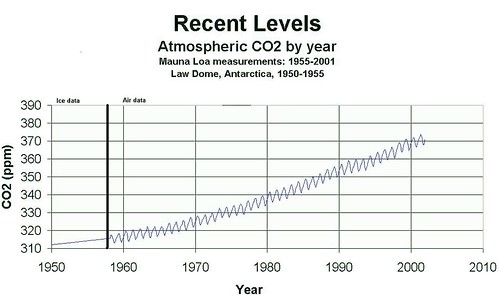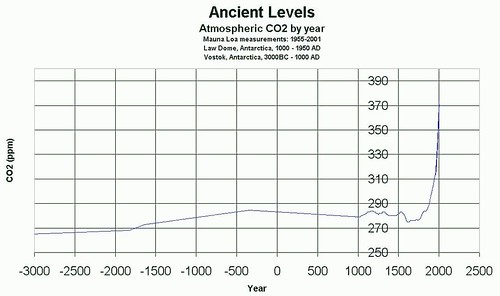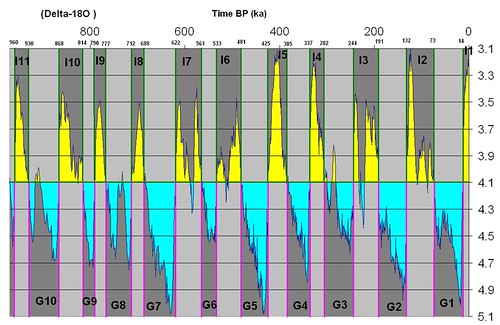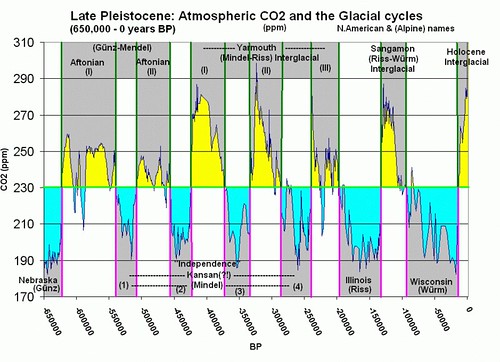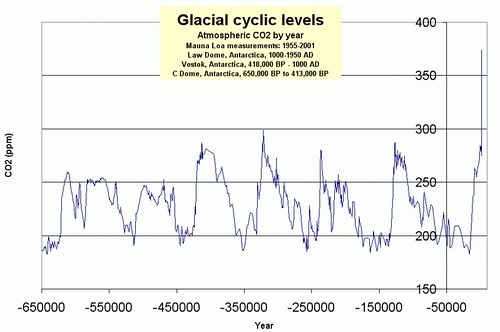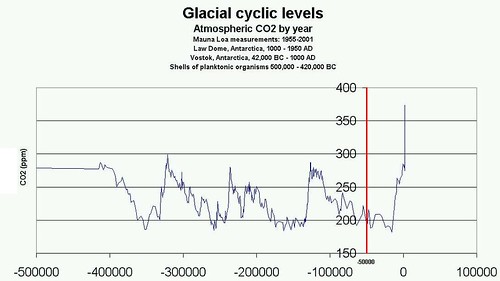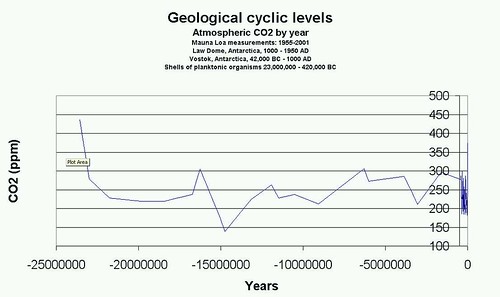Winter Solstice and sustainable growth
I'm pretty much convinced in the argument that the success of our economic system is based on a continual growth of available cheap energy and if/when that growth of cheap energy ends, so will the basis of our success.
Whether our "party" will end imminently or in a century it seems clear to me that it won't be a happy ending unless we change course. It might even be that the is NO happy ending no matter what we do individually or collectively.
I've long thought at least that Conservation is a virtue because it minimizes wastefulness, but conservation isn't clearly a virtue in a "growth" economy. If we continue to grow and continue to squeeze out more and more efficiency along the way, when resources become scarce there little "fat" remaining in the system to be squeezed.
SO from he point of view of consumers and shortages and transitioning, the BEST choice is to WISELY "overconsume" now while things are cheap, but be prepared to cut WAY back later when prices rise.
A nice little theory of exploiting opportunity, but can it be done? Can we invest our "wealth" in a way that doesn't make us dependent upon it? Doesn't "Power corrupt"? Aren't we in continal danger of being corrupted by our own short term success and forget the bigger picture?
Yes is my answer to this rhetorical question. What's the use of building a massive infrastructure of civilization if we can't afford to keep it later?
Such questions are intractable in every way since the future is unknown and perhaps we will just keep leapfrogging to the next energy source greater than the last. Still until we've got our "Money in the bank", I think its worth questioning our priorities and decisions.
Recent thoughts work around cheap natural gas to heat our homes in Minnesota. Not that people will think the doubling of price in the last year is cheap, but given the convenience, cleanness and efficiency of natural gas, it seems like a pretty good deal to me still, even if I do keep my house a bit colder than I would if I was completely unaware of cost.
Cheap natural gas makes living in cold climates like Minnesota attractive. People move here, more houses are built that are heated by natural gas, and everyone is happy. UNTIL someday natural gas isn't as cheap and available as now, and then what do we do?
So the 100 year pattern (1950-2050) may be: (1) RISE: Short term opportunity and unsustainable growth (2) FALL: Shortages and abandonment.
I would say that further development is UNWISE until we "solve" our heating problems, until we can keep our homes warm without consuming every larger quanties of natural gas.
That may be a 50-year goal, and we might say "50 years is plenty of time to try something else", and we'd be DEAD wrong. Not that 50 years is NOT a long time, but that the problem NEVER gets any easier by waiting - it gets harder.
Why the HELL do people follow a pattern based purely on past success and current opportunity without projecting changing conditions in the future?!
Just like my belief we're best off with high gasoline taxes to make alternatives competitive for transportation, I'm SURE we're best off in the long run with higher natural gas prices NOW to make alternatives competitive for home heating.
WITHOUT high heating prices, people will continue building energy wasteful homes because it's not worth the higher short term costs to do things differently. Sure many newer homes are better insulated which is good, but they're still just big boxes totally dependent upon natural gas to stay warm.
There's innumerable problems in parallel of continued increased population and development and keeping warm is perhaps only in the top-10 list of deal-breakers for our future existence here.
I accept that change takes time and finding a GOOD new way LOTS of time, and best to try lots of new things in hopes a few will work out. But momentum in the wrong direction is a scary train to be on, and I have to believe we must do something to put on the brakes at the same time we're looking where to jump off!
I would have to say it is in the best interest of Minnesota to be "Energy self-sufficient" which means we ought to "produce" as much energy as we're consuming. Not a fair test for a state without fossil fuel resources in the ground to exploit. We WILL continue "importing" goal, natural gas, and oil for our energy needs as long as the markets exist to sell them at a price.
How do we "balance" this willful exploitation against being corrupted by it? What exists to counterbalance our consumption, to moderate it?
Clearly at some point in the future imported energy will lose its competititiveness and we will look BACK to our own resources for substitutes. Can such substitutes REPLACE even a fraction of our consumption now? (10% ethanol in gasoline at least) Can conservation help reduce our energy demands? Can we "retrofit" our economy under new conditions when inflation knocks it down?
In my little mind, I imagine somehow "good investment" and "bad investment" divisions can be made that help us see what increases the strength of our economy to withstand a global depression that will come with an energy shortage.
How will we keep our roads paved without cheap asphalt raw material, or cheap oil to run our machines to place it? What substitute material will we have, if not in 10 years, then in 100 years? Minnesota's climate is not friendly to any road paving with our long season of Freeze/thaw days and nights which work ice into the cracks. Without maintenance I would imagine our roadways would be a pot-holed nightmare within 10 years of neglect.
I would have to seriously think about abandoning many of our roads. Maybe such decisions don't need to be made now, but sooner or later the cost of road maintenance will force us to prioritize our needs. CERTAINLY it seems foolish to only envision the future of MORE ROADS without considering the cost and conditions of maintaining them.
I would think all roads deemed "primary", roads that had high daily usage, should have investment that resurfaces them with a more permanent material, from ceramic paver bricks to stone even. WHY not invest our "cheap energy" to get some roads that might still be around in 100 years?
And I've heard that rail is more efficient for long distance transportation than cross-country trucks. So it would seem we should invest in protecting our current rail system and expanding as needed to handle changes in population centers since they were first built.
It is hard to imagine being the place of government, now being forced to follow the business models of 5-10 year planning while government ought to be thinking of 50 year needs. It's hard to imagine all the demands for money from the government which DON'T support long term goals of viability our our collective future.
What fraction of income ought to be devoted to the future? Priorities are messy things, EVEN IF government people had a realistic perspective on what the future may hold.
Overall it seems crises alone are sufficient to pull people out of their blindspots.
Who am I to say we should "pave mainstreet with 100-year bricks" rather than "Add two more asphalt lanes to the suburban freeways"?
Who am I to say we should set 30mph as the "metro speed limit" to encourage fuel efficiency and lower power, lighter vehicles that don't take as much fuel begin with?
Who am I to say that the poorest 25% of the population ought to live well without cars entirely and that the city should be designed to meet their transit needs by walking, biking, and busing?
Who am I to say natural gas should be taxed at 50% rate to reduce consumption, subsidizing conservation and passive heating systems, and taxing construction that fails to follow best standards of energy reduction?
Living in a democracy means that if a majority of the people decide to jump off a cliff, we're all obligated to follow like the lemmings that we are.
Still I'm glad for my freedom to be foolish, and wouldn't easily accept paternalistic laws laid down from the benevolant dictator Greendude, anticipating "the needs of the 7th generation".
In the long run it's in all our best interest to change course, and whatever little corner each of us inhabits, we may all have are part to play to bring that about.
A million people can probably stop a train, if can see the cliffs coming. And it takes just one loud Chicken Little to offer the battle cry for action.
What are we waiting for?!
